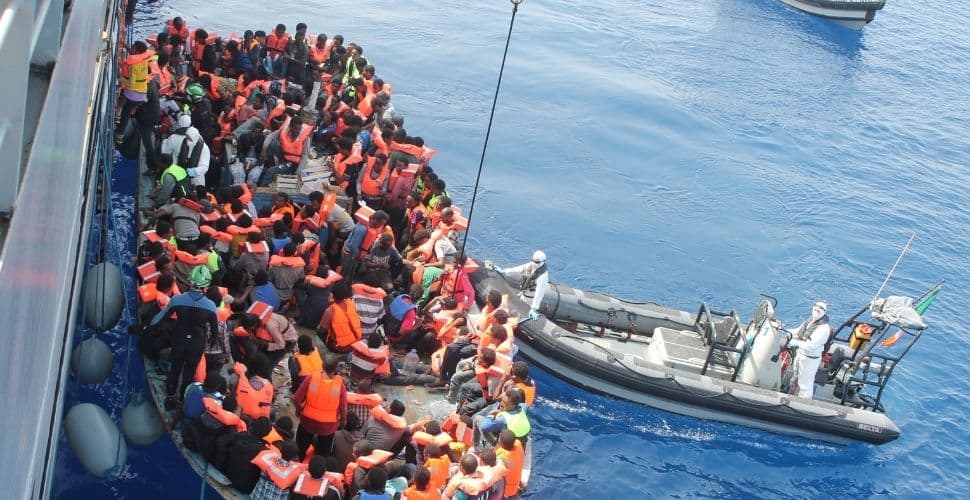In a damning new report released this week, Amnesty International reiterates calls on the European Union (EU) to cease supporting the Libyan Coast Guard in light of further evidence of appalling human rights abuses endured by refugees and migrants attempting to flee the country.
Conditions in Libya are dire. Migrants and refugees live in fear of being arrested and sent to detention centers, notorious for the extreme violence and torture that is committed there. Traffickers and militias pose an additional threat as they seek to abduct vulnerable migrants for the purposes of forced labor and extortion.
Interviews with refugees and migrants included in the report disclose the horrific abuses they are subject to in the country including “unlawful killings; enforced disappearances; torture and other ill-treatment; rape and other sexual violence; arbitrary detention; and forced labour and exploitation at the hands of government authorities or militia groups.”
Yet, the EU continues to collaborate with the Libyan Coast Guard, responsible for forcibly returning tens of thousands of refugees attempting to escape Libya via the Mediterranean Sea to reach safety in Europe.
It is unacceptable that the EU continues to play a supporting role in perpetuating egregious human rights abuses in Libya by providing the Libyan Coast Guard with “speedboats, training and assistance”. That’s why we are urging EU member states to immediately cease funding the Libyan Coast Guard and side with humanity.
Amnesty International reports:
Those returned to Libya are frequently held in official Directorate of Combatting Illegal Migration detention centres under the authority of the ministry of interior of the UN-backed Government of National Accord, which controls western Libya. In addition, this year alone thousands have been subjected to enforced disappearance after being transferred to unofficial places of detention, including the Tobacco Factory (a reference to its former function) under the command of a Government of National Accord-affiliated militia led by Emad al-Trabulsi in Tripoli. There are serious concerns for the safety of those held at the Tobacco Factory.
Dozens of refugees and migrants described to Amnesty witnessing the death of their loved ones while detained at a Directorate of Combatting Illegal Migration centres or in places of captivity run by traffickers. In one incident on 27 May, gunmen opened fire on some 200 people held by traffickers near the town of Mazda, killing at least 30 and injuring 11. The others remain unaccounted for – feared dead or abducted.
The necessity for migrants and refugees to leave Libya by any means is evident. In the absence of safe and legal migration routes available, thousands have been faced with little option but to board boats to cross the Mediterranean in a journey that may cost them their lives.
An estimated 60,000 people making that crossing have been forcibly returned by the Libyan Coast Guard in the past four years, yet only 5,709 individuals have benefitted from resettlement and evacuation programs since 2017.
One refugee told Amnesty: “Right now refugees [are] going to cross the sea… [There is] no evacuation and no resettlement … Refugees in Libya are at risk. [We are] between life and death.”
The situation is critical and demands immediate action. Add your voice to the campaign and let’s keep up the pressure on the EU to cease its support of the Libyan Coast Guard.





Freedom United is interested in hearing from our community and welcomes relevant, informed comments, advice, and insights that advance the conversation around our campaigns and advocacy. We value inclusivity and respect within our community. To be approved, your comments should be civil.
I have to say this and I know i speak for many British people and maybe in Europe too, This is something that should be dealt with in Libya. You speak of tens of thousands being stopped from crossing the Mediterranean to reach Europe, we cant take any more people, we have far too many here now, to keep allowing them to come is storing up trouble in the future, The problem of these countries must be sorted at source not brought over to Europe and the UK.